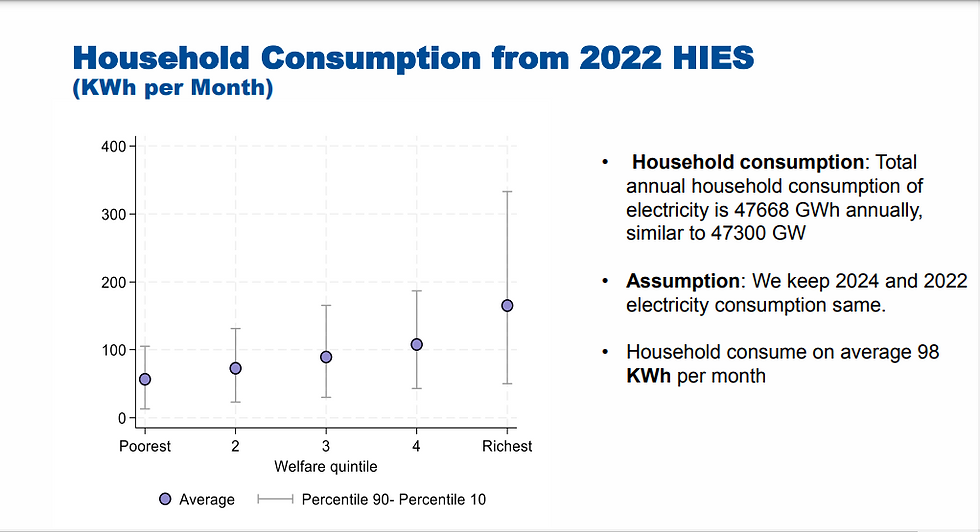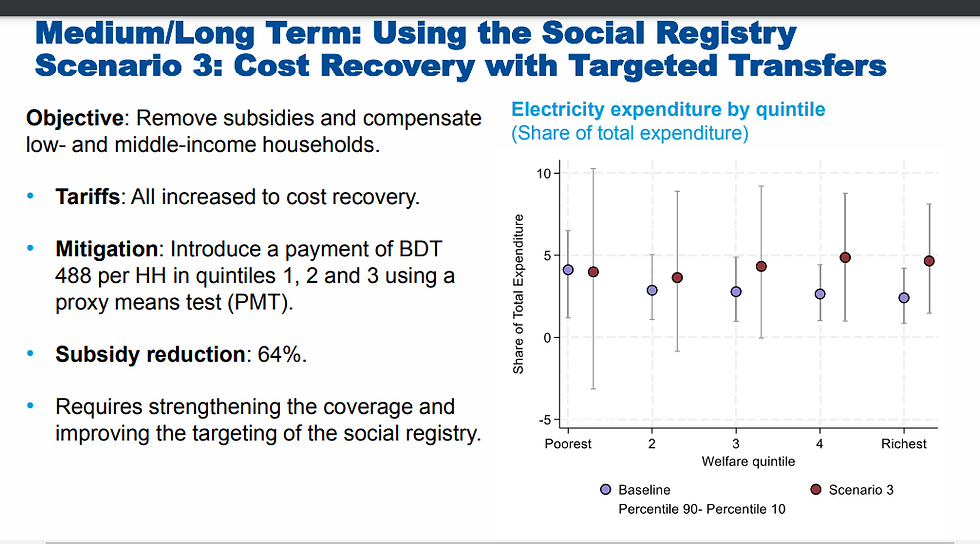
Jul 1, 2025
| MD Shamim Jahangir | The Just Energy News
The International Monetary Fund (IMF) has called on Bangladesh to overhaul its electricity subsidy regime, warning that the current structure disproportionately benefits wealthier households at the expense of the poor.
In a draft technical assistance report submitted to the Power Division on June 30, the IMF flagged significant inefficiencies in electricity pricing and urged both short- and long-term reforms to reduce fiscal pressure and improve subsidy targeting.
BPDB in Deep Financial Trouble
The report highlights the worsening financial health of the Bangladesh Power Development Board (BPDB), the country’s sole electricity buyer. Existing tariffs and subsidies fail to cover power purchase costs, leading to mounting losses.
In FY2023-24, BPDB’s break-even bulk tariff rose to Tk 11.74 per kilowatt-hour – nearly double the Tk 6.18 needed in FY2019-20. Without tariff reforms, the IMF warned, BPDB cannot recover its losses or invest in critical infrastructure upgrades.

The report, titled “IMF TA Electricity Subsidy Reform Bangladesh”, was based on a recent mission to Dhaka led by IMF officials Fabiana Machado, Nicolo Bird, Nusrat Chowdhury, and Alberto Tumino. The team consulted with the Power Division, BPDB, Petrobangla, and the Bangladesh Petroleum Corporation (BPC).
Bangladesh Power Development Board (BPDB) Chairman Engineer Rezaul Karim told Just Energy News that the International Monetary Fund (IMF) presented a draft report to the board on Tuesday morning and requested feedback by September.
Subsidies Favor the Wealthy
The IMF identified a key flaw in the subsidy model: it’s regressive. In FY2023-24, the wealthiest 20% of households received nearly 32% of electricity subsidies – amounting to around Tk 51,000 crore – while the poorest 20% received just 12%.
“Poorer households consume less electricity but spend a larger share of their income on it,” the report stated. Bangladesh’s annual household electricity consumption was 47,668 GWh, with the average monthly usage at 98 kWh.

The IMF also noted that combined electricity and gas subsidies reached 1.32% of GDP in FY2022-23 and 1.10% in FY2023-24, straining public finances further.
Four-Phase Reform Roadmap Proposed
To reduce inefficiencies and better protect the poor, the IMF proposed a four-stage reform plan:
Short-term – Block Tariff Restructuring: Expand lifeline tariffs and increase upper-tier rates by up to 15%. Estimated savings: 2.1%.
Short-term – Geographical Targeting: Modest hikes for urban (10%) and rural (5%) users using poverty maps. Estimated savings: 6.1%.

Medium-term – Targeted Cash Transfers: Remove subsidies and offer BDT 488/month to the bottom 60% of households. Potential subsidy cut: 64%.
Long-term – Social Registry-Based Targeting: Link tariffs to welfare status via social safety net registries. Potential savings: 58%.
Institutional and Regulatory Reforms Needed
For successful implementation, the IMF stressed the need for stronger regulatory oversight through the Bangladesh Energy Regulatory Commission (BERC), integrated data systems, retirement of inefficient power plants, and transparent public communication and service improvements. The report also called for annual subsidy reduction targets and the use of digital tools to identify and support low-income households.
IMF Sets September Deadline
The IMF has asked the Power Division to submit a formal response and a three-year roadmap for subsidy reforms by September 2025. An official confirmed, “We are preparing the roadmap as per the IMF’s recommendations and plan to survey lifeline consumers through the Bangladesh Bureau of Statistics (BBS).”
No Immediate Tariff Hike
Despite the IMF’s push, Power Division sources said there are no immediate plans to raise electricity tariffs. Instead, the government aims to cut costs through internal reforms and efficiency measures. A senior official admitted past flaws in embedding subsidies within the tariff structure and said the interim government now plans to channel direct cash support to low-income users through the Ministry of Social Welfare, aligning with existing safety net programs.
News Link: Electricity subsidies favor the rich, IMF presses for reform